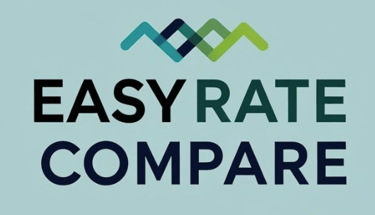

Top 10 Best Personal Budgeting Apps in Canada
In today’s fast-paced world, managing your money effectively is more important than ever. Whether you're saving for a house, paying off debt, or just trying to avoid overspending, the right budgeting app can make all the difference. Here are ten of the best personal budgeting apps for Canadians, along with their pros and cons to help you decide which one fits your needs.
1. You Need A Budget (YNAB)
YNAB uses a zero-based budgeting approach, helping you allocate every dollar you earn.
Pros:
Highly effective budgeting method
Great educational content and tutorials
Helps break the paycheque-to-paycheque cycle
Cons:
Monthly subscription required
Steeper learning curve than other apps
Syncing issues with some Canadian banks
2. Monarch Money
A newer, powerful tool for managing your full financial life — from spending to investments.
Pros:
Syncs with multiple accounts, including banks and investments
Clean interface with customizable budgets
Great for couples or families
Cons:
Subscription-based with no free plan
Some Canadian bank connections can be unreliable
Might feel overwhelming if you prefer a simpler app
3. PocketGuard
PocketGuard is designed to show how much disposable income you have after bills and necessities.
Pros:
Simple “what you can spend” overview
Tracks recurring bills and subscriptions
Minimal setup required
Cons:
Limited budget customization
Some key features are behind a paywall
Lacks advanced planning tools
4. Goodbudget
Goodbudget uses the traditional envelope method to help you plan your spending.
Pros:
Simple and effective for monthly planning
Can be shared with a partner or family
Free version available
Cons:
No automatic bank syncing — manual entry required
Free version limits envelopes and accounts
Doesn’t track investments or future projections
5. KOHO
KOHO is a Canadian prepaid Visa card that combines banking, budgeting, and rewards in one app.
Pros:
Real-time spending updates
Built-in savings tools and cash-back options
Free plan available, with premium features offered
Cons:
Doesn’t build credit (prepaid card)
Budgeting tools only work with KOHO transactions
Premium features come at a cost
6. Spendee
Known for its bright, visual interface and collaborative budgeting features.
Pros:
Beautiful, intuitive design
Shared wallets for families or roommates
Supports multiple currencies and crypto wallets
Cons:
Premium version required for full features
Occasional syncing issues
Not ideal for long-term financial planning
7. Wally
Wally is focused on personal expense tracking, with a clean and straightforward interface.
Pros:
Detailed category tracking and receipt scanning
Supports multiple currencies
Easy to navigate
Cons:
Manual setup can be time-consuming
Some features feel cluttered with heavy use
Less automated than other apps
8. PocketSmith
PocketSmith is great for people who like to forecast their financial future and plan ahead.
Pros:
Unique calendar-based budgeting
Long-term financial forecasting tools
Helps visualize future balances and scenarios
Cons:
Advanced features require a paid plan
Too complex for simple budgeting needs
No strong gamification or saving incentives
9. Wealthsimple Cash (and related tools)
While primarily known for investing, Wealthsimple also offers tools for basic budgeting and money management.
Pros:
Easy integration with Wealthsimple banking and investing
Clean, modern design
Great for Canadians already using Wealthsimple services
Cons:
Budgeting features are still developing
Not as customizable as dedicated budgeting apps
Some syncing issues reported
10. Manual Budgeting (Spreadsheet or Notes-Based)
Sometimes, the best tool is the simplest one — a custom spreadsheet or budgeting journal.
Pros:
Full control over every entry
No subscriptions or app limitations
Maximum privacy and customization
Cons:
Time-consuming and fully manual
No automated alerts or reminders
Requires discipline to maintain
Why You Should Use a Budgeting App
No matter your income level or financial goals, using a budgeting app can have a huge positive impact. Here’s why:
1. Clarity Over Spending
Budgeting apps give you a clear picture of where your money goes. This helps you identify unnecessary expenses and adjust accordingly.
2. Easier Goal Setting
Whether you’re saving for a car, a home, or a vacation, budgeting tools let you set and track your goals easily.
3. Improved Savings and Debt Repayment
Many apps have features that help automate savings and track debt payoff strategies like the snowball or avalanche methods.
4. Less Stress
Knowing your finances are organized helps reduce money-related anxiety. No more worrying about missing a bill or going over budget.
5. Accountability and Habits
Budgeting regularly encourages better financial habits. Many people find that just seeing their spending patterns helps them improve.
Final Thoughts
Choosing the right budgeting app depends on your needs. If you want automation and deep insights, apps like YNAB or Monarch Money are excellent. If you prefer simplicity and free tools, KOHO or Goodbudget may work better. And if you’re the DIY type, a spreadsheet could be perfect.
The most important thing is to start — even the simplest budget is better than none.
